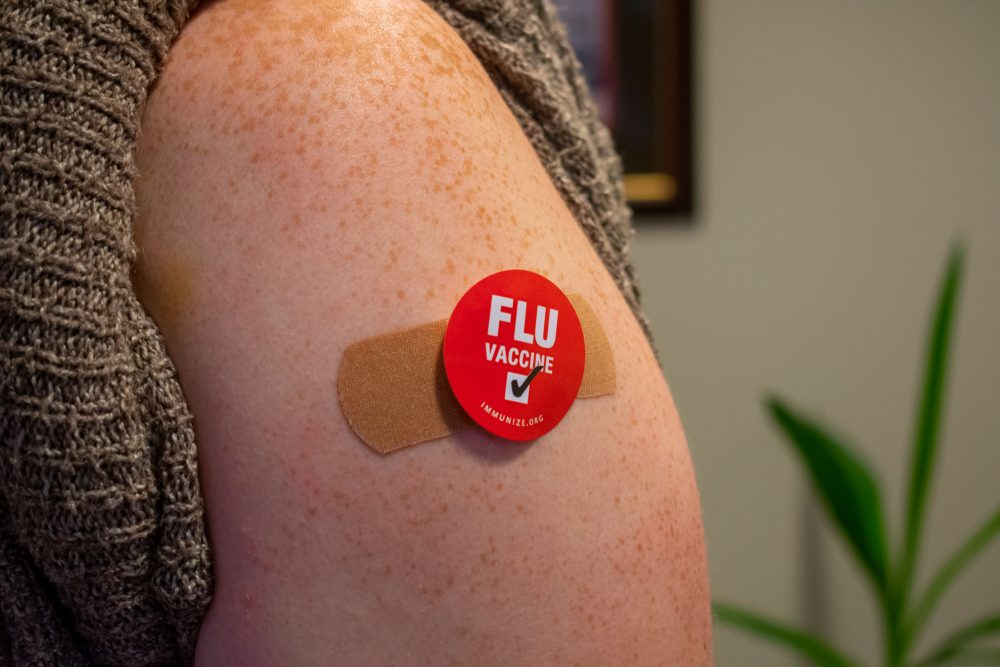By Ryan White
For The Diamondback
Last week, the University Health Center began administering this year’s influenza vaccine during an event called Flu-Palooza. Held outside the health center building’s emergency entrance, the event aimed at vaccinating as many people as possible before the flu season begins, according to a health center statement.
According to the Centers for Disease Control and Prevention, the timing and duration of the flu season varies from year to year, with peaks in activity usually between December and February.
“Timing the flu is a bit like timing the stock market. A lot of people think they’re good at it,” said Donald Milton, a professor of environmental health who conducts research on the airborne transmission of infectious diseases at this university’s public health school.
But this year, amid the ongoing coronavirus pandemic, Milton said people should be encouraged to get a flu vaccine.
“If you get a bad flu on top of COVID-19, then we’re gonna see very high mortality rates and a lot of problems because of health care being overwhelmed,” Milton said.
[COVID-19 has hit immigrant communities hard. This local group has helped thousands.]
But according to Milton, a combination of people being vaccinated for the flu and following COVID-19 precautions — such as wearing masks and social distancing — could help to control the spread of both viruses.
This year, Milton said, the Southern Hemisphere didn’t experience a flu season for the first time on record. The season, which normally lasts from April until early fall in the region, didn’t occur this year due to restrictions already put in place because of the coronavirus, Milton said.
According to the CDC, both COVID-19 and the flu share similar symptoms including fever, coughing, shortness of breath and fatigue. As students on this university’s campus prepare for the flu season to begin, the health center recommends that students and staff practice health and safety measures to combat both viruses.
In addition to following COVID-19 guidelines, students and staff should get seven to nine hours of sleep per night, stay hydrated, manage stress and ask friends and family to get the flu shot as well, according to a statement from the health center.
Stephanie Dean, a junior mechanical engineering major, got her vaccine at Flu-Palooza on Friday.
[Here’s what College Park residents think about students’ return to campus]
“I personally get the flu shot every year,” Dean said. “I think it is important to protect not only myself, but other people who are immunocompromised.”
Jayda Barber, a junior chemistry and criminology and criminal justice major, went with Dean to also get vaccinated.
The two, who are housemates, signed up together through a university website that also allows students to schedule COVID-19 testing appointments.
Barber said that with the pandemic, she feels it is important to actively keep oneself healthy, and that getting a flu vaccine is part of that.
But Flu-Palooza isn’t the only health measure the university has taken. It has implemented a daily self-monitoring symptom survey this year and offered COVID-19 testing appointments.
“I think Maryland’s doing a better job than a lot of the schools that my friends are going to in other parts of the country,” Barber said. “Hopefully we can keep up with it for the rest of the semester.”
According to the health center, if a student has symptoms that could be related to the flu or COVID-19, they can be tested for the flu in the health center’s offices, but will be advised to isolate if a health care provider presumes that a patient has the coronavirus.
Students should also continue to report any symptoms of COVID-19 through the university’s symptom survey, and should notify the health center if they think they have a symptom associated with the virus, the statement read.
“We are still learning more and more about COVID-19 regularly,” the health center’s statement read. “This will be the first time we will be dealing with both COVID-19 and Influenza together.”



